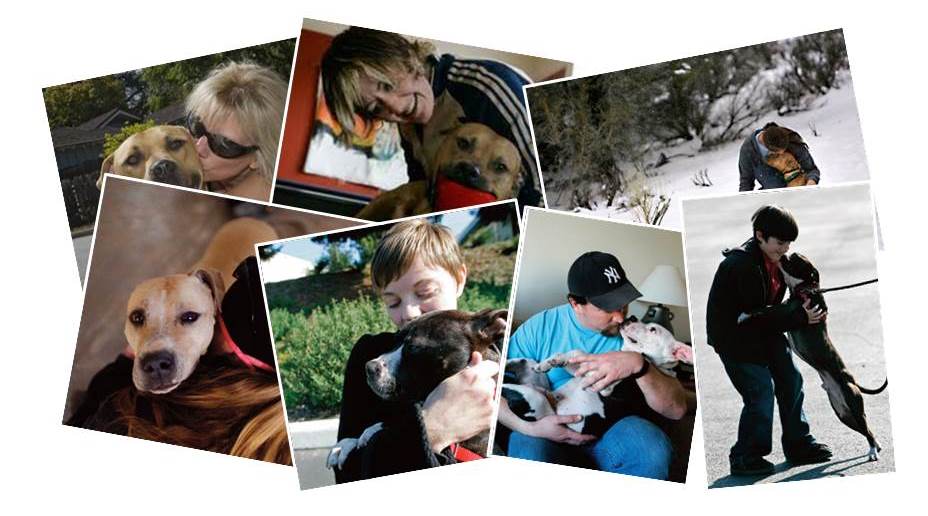On November 6 at the University of Virginia School of Law, I debated PETA’s attorney on the issue: “The Kill Versus No Kill Debate: Which Animal Shelters Are Most Humane?” I argued for a guaranteed right to life for companion animals entering shelters. PETA argued that animals were better off dead. In the interests of full disclosure, I agreed to have the debate videotaped or audiotaped and to make it available to everyone so people could hear for themselves what each side believed and where each side stood on the issue in their own words. PETA refused.
As such, over the next several weeks, I am going to post on the fundamental disagreement between PETA, on the one hand, and on the other, myself and what I believe to be the true No Kill and animal rights position.
First up: pit bulls.
“Most people have no idea that at many animal shelters across the country, any pit bull that comes through the front door doesn’t go out the back door alive. From San Jose to Schenectady, many shelters have enacted policies requiring the automatic destruction of the huge and ever-growing number of ‘pits’ they encounter. This news shocks and outrages the compassionate dog-lover. Here’s another shocker: People for the Ethical Treatment of Animals, the very organization that is trying to get you to denounce the killing of chickens for the table, foxes for fur or frogs for dissection, supports the shelters’ pit-bull policy… People who genuinely care about dogs won’t be affected by a ban on pits.”
That is what PETA founder Ingrid Newkirk once wrote in an OpEd piece that appeared in newspapers across the country. More recently, PETA sent a letter to the Mayor of Williamson County, TN, telling him not to work with rescuers, not to foster sick animals, and to kill every pit bull in the shelter: “PETA also recommends a ban on the adoption/release of dangerous dogs and fighting breeds (commonly known as ‘pit bulls’).”
There is no dog in America more maligned and misrepresented than those classified by shelters as a “pit bull.” There are no shelter dogs more in need of the humane movement’s compassion, in need of a call to arms on their behalf, and in need of what should be the full force of a shelter’s sanctuary and protection. Many shelters and animal protection organizations, however, have determined that these dogs are not worthy of their help. And no one has been more emphatic and unapologetic than Ingrid Newkirk and PETA in promoting this unfair and deadly double standard—along with the idea that that those who care about animals needn’t concern themselves with the fate of these particular dogs. Moreover, recent research shows that shelters misidentify breeds as much as 75 percent of the time. And as used by shelters, law enforcement agencies and even courts, “Pit Bull” is not a breed of dog. It is, according to a leading advocacy organization, “a catch-all term used to describe a continually expanding incoherent group of dogs, including pure-bred dogs and mixed-breed dogs. A ‘Pit Bull’ is any dog an animal control officer, shelter worker, dog trainer, politician, dog owner, police officer, newspaper reporter or anyone else says is a ‘Pit Bull.'” When it comes to dogs we call “pit bulls,” shelters are not only unnecessarily killing them based on meaningless stereotypes, they are killing dogs they mistakenly think fit those stereotypes by the way they look.
PETA’s answer, however, is to continue killing the victim, as they tried to do when they stated that the dogs abused by Michael Vick should be put to death. Thankfully, the court declined. Instead of being overdosed with barbiturates, put into garbage bags, and then sent to rot in a landfill as PETA suggested, they were given the chance to:
Play with toys
Experience love
Get a warm embrace
Get showered with kindness
Receive affection
Feel safe
Experience joy
In short, the happy endings PETA did not want them to have.
————-
Have a comment? Join the discussion by clicking here.







